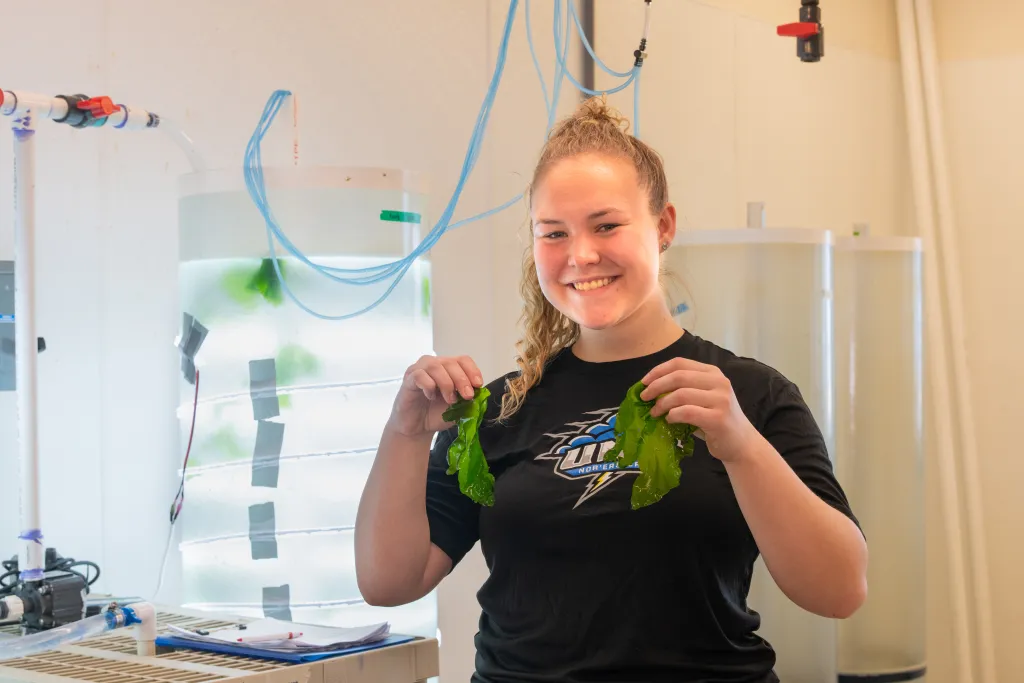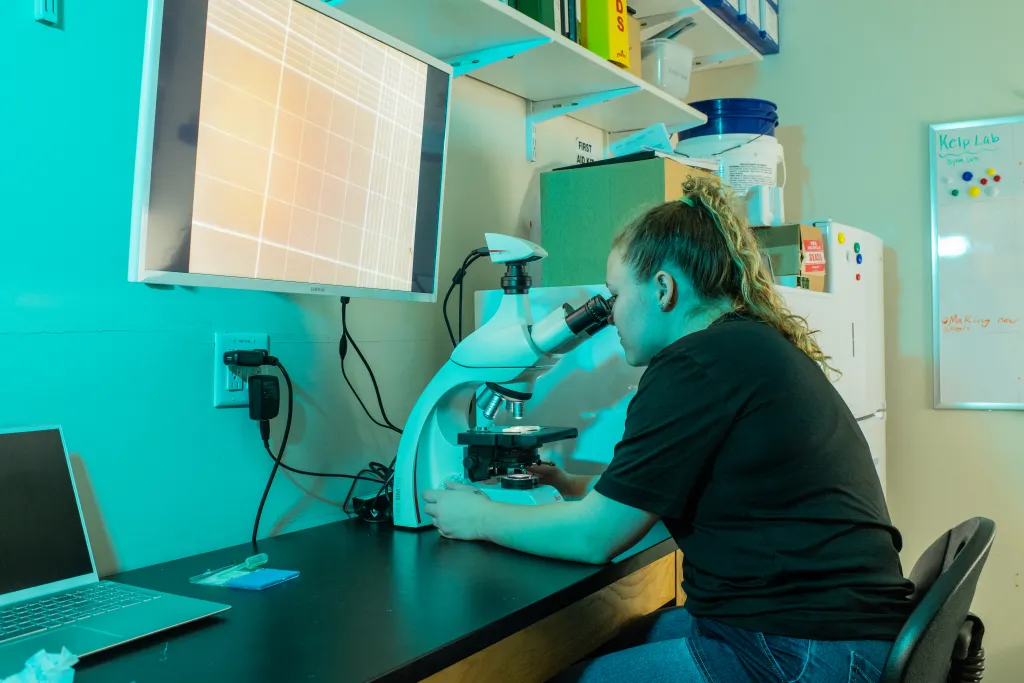
A University of New England student receives first hand aquaculture experience while researching sustainable food systems.
Last summer, Sophia Tearman (Marine Science, ’24) was a part of the UNE Summer Undergraduate Research Experience (SURE) program and worked closely with Associate Professor Carrie Byron, Ph.D., in partnership with Atlantic Sea Farms, a regenerative seaweed aquaculture company, to study how sea lettuce is grown and what conditions it needs to thrive.
Tearman researched the best methods for cultivating sea lettuce, a sustainable and edible type of seaweed, to help industries like Atlantic Sea farms successfully cultivate the crop commercially for the first time in North America, she said.

Sea lettuce has the potential to be a useful and interesting crop to explore in the light of climate change, Tearman said.
“Sea lettuce is particularly appealing because it has a really good ability to be able to grow in warming waters, which is really good for here in the Gulf of Maine where our waters are warming,” she said.
Byron said that there is a lot to learn about the reproductive cycle of sea lettuce, including understanding how this process is related to lunar cycles, although these findings have been sparsely documented.
“Sophia’s been collecting data regularly with the lunar cycle and evaluating how many spores the sea lettuce releases at these different time points in the lunar cycle,” Byron said. “And that's going to be a very valuable contribution to scientific literature.”
Tearman has brought this research to the UNE Seaweed farm where they are working to grow sea lettuce on two different seaweed farm sites in Saco Bay, including Ram Island and Wood Island.
Receiving the opportunity to do real-world research has had a positive impact on Tearman’s time at UNE, she said.
“It’s been amazing. I never thought that I would be able to do (research) this early on in my career,” Tearman said. “It's just been miraculous how much support that I've had.”
Bryon said that working with industry professionals is a huge asset to students’ career readiness.
“I can provide academic research opportunities to my students, but students who then can also work with an industry partner are getting something very different from the industry partner,” she said. “They're understanding how to run a business, [learning] different sets of priorities, and ways of operating things.”

Tearman said she’s very excited at the prospect of more partner farmers growing sea lettuce regularly.
“Sometimes you don't always see science go into immediate impact. Like as soon as (I’m) done with it, someone's going to use it, and that's been a really cool part of this project,” she said.
At UNE, Tearman is currently working on quantifying how other physical factors in the environment may impact sea lettuce reproductivity such as temperature, light, and pressure.
At UNE, Tearman is currently working on quantifying how other physical factors in the environment may impact sea lettuce reproductivity such as temperature, light, and pressure.
Tearman will graduate this spring and plans to continue researching sea lettuce for her master’s degree in Marine Sciences in the fall. She said her time at UNE really shaped her as a researcher.
“(I was) provided with a lot of flexibility to be able to do whatever I thought would be the next step for this project,” she said. “Now, I'm really excited about sea lettuce being an option to grow as an alternative source of protein.”